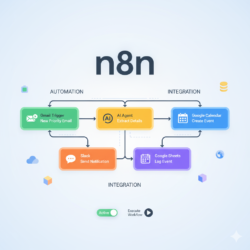
For years, artificial intelligence was something we used — we typed prompts, and it responded. But the rise of Agentic AI marks a turning point. These systems no longer wait for commands; they act — browsing, comparing, buying, and negotiating on our behalf.
And that’s exactly where the latest Amazon–Perplexity legal clash comes in — a case that may become the first real test of digital agency, data boundaries, and platform control.
What Actually Happened? Why Did Amazon Sue Perplexity?
In early November 2025, Amazon filed a lawsuit against Perplexity AI, a rapidly growing artificial intelligence startup, accusing it of covertly accessing customer accounts and disguising AI activity as human browsing through its Comet Browser — a browser that includes a shopping assistant capable of placing orders automatically.
Amazon’s lawyers stated bluntly:
“Perplexity’s misconduct must end… That Perplexity’s trespass involves code rather than a lockpick makes it no less unlawful.”
According to Amazon, Perplexity’s system ignored repeated warnings and violated the company’s terms of service by automating shopping actions without disclosing that the requests were made by an AI agent, not a human user.
Perplexity’s Defense
Perplexity, on the other hand, strongly denies any wrongdoing — accusing Amazon of bullying and stifling innovation. In a blog post titled “Bullying Is Not Innovation,” the company wrote:
“Bullying is when large corporations use legal threats and intimidation to block innovation and make life worse for people.”
Perplexity is insisting that its technology only operates with user consent and within legal limits. It argues that Amazon’s move is less about security and more about maintaining platform dominance as agentic systems threaten traditional web models.
This has now escalated into what analysts are calling the first legal test of AI autonomy — one that could set global precedents.
What Is Agentic AI?
Agentic AI refers to AI systems that don’t just respond to commands — they can take initiative, perform tasks, and make decisions on behalf of users.
Think of it as an evolution from a simple “assistant” to an autonomous digital secretary.
For example:
- You tell your AI agent, “Find me the best running shoes under ₹5,000 and order them.”
- It searches multiple sites, compares prices, adds the item to your cart, and completes the purchase — all automatically.
Potential Uses of Agentic AI:
- Online shopping & price comparison
- Booking tickets or planning trips
- Managing subscriptions and bills
- Researching products or services
- Acting as a “personal manager” for digital tasks
In short, it’s a future where your AI can act for you, not just advise you.
The Bigger Question — Whose Interest Do AIs Really Serve?
This conflict touches on a deeper, more philosophical issue — one that echoes your earlier reflection:
“When my AI agent interacts with another platform’s AI, whose interest will it really serve?”
Imagine two intelligent agents negotiating — one representing you, the other representing a platform.
Will your AI truly seek your best interest, or will it be manipulated by the other’s algorithmic bias — pushing sponsored, high-margin, or ecosystem-locked options?
The Amazon–Perplexity case brings that hypothetical future into the courtroom.
Why This Case Matters?
This lawsuit could set a global precedent for how autonomous AI agents are allowed to interact with websites and online services.
1. Control Over the Shopping Experience
If users shop through AI agents instead of directly from any of the online retailer’s platform, the customer relationship shifts from Customer → Online retailer to Customer → Agent.
That might weaken the retailer’s control and visibility over consumer behavior.
2. Advertising and Revenue Impact
AI agents can skip sponsored results or ads, threatening one of the online retailer’s key revenue streams.
3. Transparency & Accountability
Should AI agents identify themselves when interacting online?
If yes, platforms can block them; if no, it creates trust and security risks. This “transparency gap” lies at the heart of the dispute.
4. Data and Security Risks
From any online retailer’s side, any non-human interaction raises red flags for data protection, fraud prevention, and maintaining user trust.
What’s Next?
Legal experts describe this as the first major test of autonomous AI agents in commerce.
Possible outcomes include:
Innovation Shift: Smaller startups might push for open web standards where agents can safely operate with transparency.
Platform–Agent Partnership: Companies like Amazon might establish official APIs or licensing systems for AI agents.
Agent Regulation: Governments could enforce rules requiring AI agents to identify themselves online.
Stronger Platform Restrictions: Amazon could block non-compliant agents entirely.
What Could Be the Future Solution?
For this new digital ecosystem to thrive, collaboration and transparency will be key.
A few possible solutions include:
- “Know Your Agent” Standards: Agents must declare their identity when acting online.
- User Consent Frameworks: Platforms and users agree on what agents can or cannot do.
- Secure APIs for Agent Access: Allow safe, authorized interaction instead of scraping.
- Shared Data Responsibility: Ensure privacy and accountability for both users and platforms.
Ultimately, the future of Agentic AI depends on trust and cooperation between tech giants and innovators.
Also Read: Best AI tools to boost productivity in 2026






